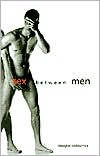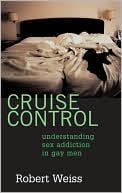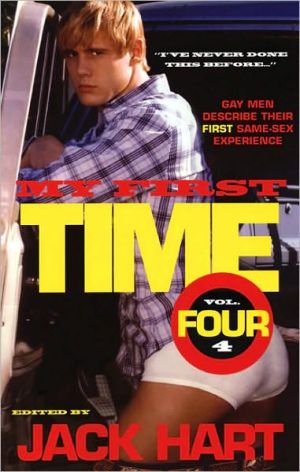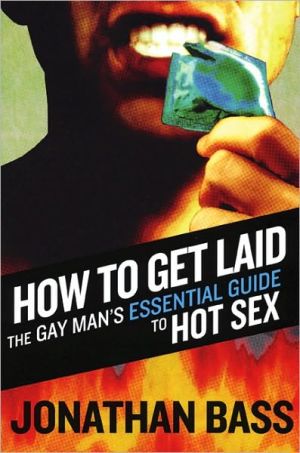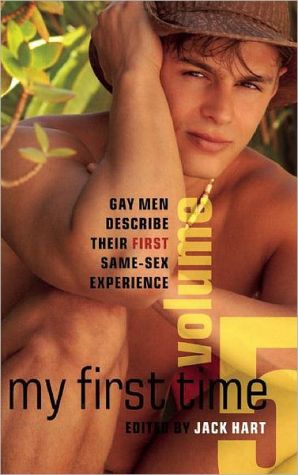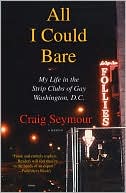Sex Between Men: An Intimate History of the Sex Lives of Gay Men Postwar to Present
From the liberating discovery of "buddies" in the World War II trenches to the brutal repression of the '50s, from the heady possibilities that emerged in the wake of the Stonewall uprising to the hedonistic lovefests and ecstatic extremes of the baths and sex clubs of the '70s, and finally from the psychical and emotional carnage of the AIDS-plagued '80s to the '90s sex clubs, Douglas Sadownick provides a full-scale psychosocial analysis of the sexual behavior of gay men. Combining personal...
Search in google:
From the liberating discovery of "buddies" in the World War II trenches to the brutal repression of the '50s, from the heady possibilities that emerged in the wake of the Stonewall uprising to the hedonistic lovefests and ecstatic extremes of the baths and sex clubs of the '70s, and finally from the psychical and emotional carnage of the AIDS-plagued '80s to the '90s sex clubs, Douglas Sadownick provides a full-scale psychosocial analysis of the sexual behavior of gay men. Combining personal testimony, thoughtful commentary and glimpses of social history from archival material, Sex Between Men puts the sex back in homosexual.
Chapter One\ What did youdo in the war, daddy?\ One man's story: holding it all in.\ \ In 1942, Herb King was a blond, nearly six-foot-tall lieutenant on his way overseas to fight in the North African campaign against the Axis powers. Raised in a Boston, Jewish burb, with straight A's to spell "normalcy," he nonetheless felt a monkey on his back. At night, King would take a girlfriend out to the movies, but when he closed his eyes to neck, he'd fantasize instead of a buddy.\ It was the duty he felt to fight in World War II that freed King from his duty to be a husband.\ Stationed in Chicago before going overseas, King met a married officer who took a shine to him. The older man provoked the young ingenue into a wrestling match that didn't stop at "uncle." As King puts it, "It was an obnoxious experience you could call rape." The bourbon-induced "quickie" might have been "for the birds," but it opened King's eyes. "I had no idea that someone who was married could be so interested in another guy," he remembers. The oral sex didn't impress him, but his feelings afterward did. King remembers his awakening this way:\ It became clear to me, somewhere between the North African campaign and the Italian campaign, between the years 1942 and 1945, that I was strongly attracted to other men. This was taking place at the time when I was promoted from a second lieutenant to a major—commander of a battalion. But I was very careful about not showing my true feelings. They did, however, permeate my actions. To be frank, I didn't know homosexuals existed. The only time I heard of homosexuality in the service was in the case of aparticular officer who was brought before the board and released. I was to learn later on that he received quite lenient treatment, compared to enlisted men.\ King says that "being in an all-male environment, sleeping together and eating together while in dangerous situations for many months" brings most men intimately together, whether they're homosexual or not. So he didn't fret too much about his open heart. "I was a nice middle-class Jewish boy," he says, "and we weren't supposed to do things like lust after men." King enjoyed socializing with women, mostly nurses. He grew very close to his men.\ He actually fell in love with them. He didn't so much sublimate his feelings as he contained them, thus giving new meaning to platonic love. Sexual feelings saturated the time and space during which the company provided munitions and supplies to frontline fighters. Images burnt through sleep: tall, thin young men, lying half-naked on tanks during those hot Mediterranean evenings, smoking cigarettes in the humid dusk.\ "That's when my identity began to form," King recalls. "I was concerned about the welfare of the men in a certain way that saved many a man's life. I was one of the more respected of officers." Later, it dawned on him that it was this homosexual love that kept his unit so cohesive, so courageous.\ King eventually found himself in a troubling situation. When King was a first lieutenant, a captain—"a real Southern bigot"—came onto the scene who acted in a callous way to the younger servicemembers. Many of the enlisted men came to King to talk over their sore feelings. "This led to an uncomfortable situation," King reminisces—"the enlisted men spoke to me in a personal manner." The only solution was to transfer to another organization. There King became the commanding officer.\ The new men also looked up to him. For many years afterward, they kept up correspondence. Because King's sexual awakening took place synchronously with his initiation as a man and a soldier, it helped him feel good, eventually, about coming out as gay—even though not a single role model, not a single serious magazine, not a single organization existed in the mid-'40s to promote a positive understanding of King's self-discovery.\ Passion Plus Patriotism Equals Fantastic Sex\ Herb King loved men with a passion easily confused with patriotism. His emblematic story stands as boundary in historical time between two different gay worlds: a covert and disguised series of prewar subcultures (what sociologist Laud Humphreys calls "a satellite culture") versus the slow emergence of a postwar identity. The war galvanized the forces that enabled King, and many others like him, to create the conscious awareness of the interlocking connection between sexual need and identity that led to the modern gay community.\ Todd Grison, an African American soldier, recalls that it was next to impossible to turn down the advances of certain beautiful men:\ There was a drill sergeant who did have a beautiful body. He used to come into the supply room—my private quarters were in the back. I guess I was gay then and didn't know it because I had them all fixed up. You know, the iron bunk beds? Well, I had mine all boxed in, real fancy. Anyway, this drill sergeant had to come back to my quarters to turn in his pistol and he would always hang around and bullshit. At that age we were playing, horsing around and shit like that. This guy was about twenty-two. Once I threw him and pinned him and there was no way I could have done that, me at a hundred and twenty-five pounds and him with a great body like that! I pressed against him and all at once I could feel something, something real hard, and I jumped up and said, "Oh, come on, let's quit this horsing around."\ The affectionate exchanges weren't isolated to that one time. "He used to tell his wife he was protecting me from the other guys," Grison continues. "Hell, he was protecting me for himself. Another time I was drunk and I remember him bringing me home, undressing me, putting me in bed and kissing me, kissing me on the cheek. He was so good-looking."\ As Alan B‚rub‚ points out in his ground-breaking Coming Out Under Fire, GIs made their first gay pals on military bases. Or they made friends with pock-marked lads and burly men during first-time excursions to big cities where sailors and marines, crowded into port cities, combed neon-lit streets, round the clock. In port cities, where there were no parents to supervise, and more money than Dust Bowl babies had so far seen, men shared beds at ymcas and slept together in parks or movie theaters.\ "It was my experience," writes Gore Vidal brazenly in his Palimpsest, "that just about everyone, either actively or passively, was available under the right circumstance." Recruits being transferred from one camp to another were placed in Pullman cars where they shared beds. Bob Thompson's first same-sex experience in the Navy took place on a troop train from San Diego to Madison, Wisconsin, in a little compartment. ("So it was something at night when we closed that door.") Another man, a chief petty officer in the Navy, recalls that when he first got into the recreation hall, there'd be "this subtle eye contact kinda thing." An entire network of friends developed via this nuanced cruising, which bespoke a new idiom.\ These epiphanies took place as men served their country. All this proved to soldiers that they could be "real" men while also becoming "gay men." Improved self-esteem created more men willing to come out and take chances; quick gropes evolved into makeout scenes, then affairs—then cliques. In psychological terms, what took place was a public sense of "mirroring," a psychic kind of "holding" that takes place when any new sense of consciousness is being raised up from baby steps.\ Some Stories from the War: The Cult of Masculinity\ It is strange to think that it took the American military to stage a national coming out experience for gay men. Imagine: the crowning achievement of the United States government, the proud moment that made the world safe for democracy, the mobilization that ended the Great Depression, the liberation of the concentration camps, the emergence of the military-industrial complex of the postwar years—all this provided the conditions for more gay sex than Christian culture had ever seen. As B‚rub‚ puts it, World War II was as significant to gays in the '40s as Stonewall was to a later generation. "Their experiences in the military and on the assembly line, their discovery of gay nightlife in cities, and their struggle to survive the postwar antigay crackdowns all helped to lay the groundwork for gay life as we know it today."\ The war uprooted tens of millions of people, and placed them in a nonfamilial, same-sex setting that encouraged male bonding. John Nichols remembers the milieu this way:\ Looking back, World War II was not all blood, sweat and tears. For many a gay guy who did not participate on the raw, raging battlefront, it was a time of high excitement, a chaotic atmosphere and a tomorrow-you-may-be-dead attitude. There was plenty of gay action available and although by today's living standards we certainly were not emancipated, we were not bored nor living in a closet either.
